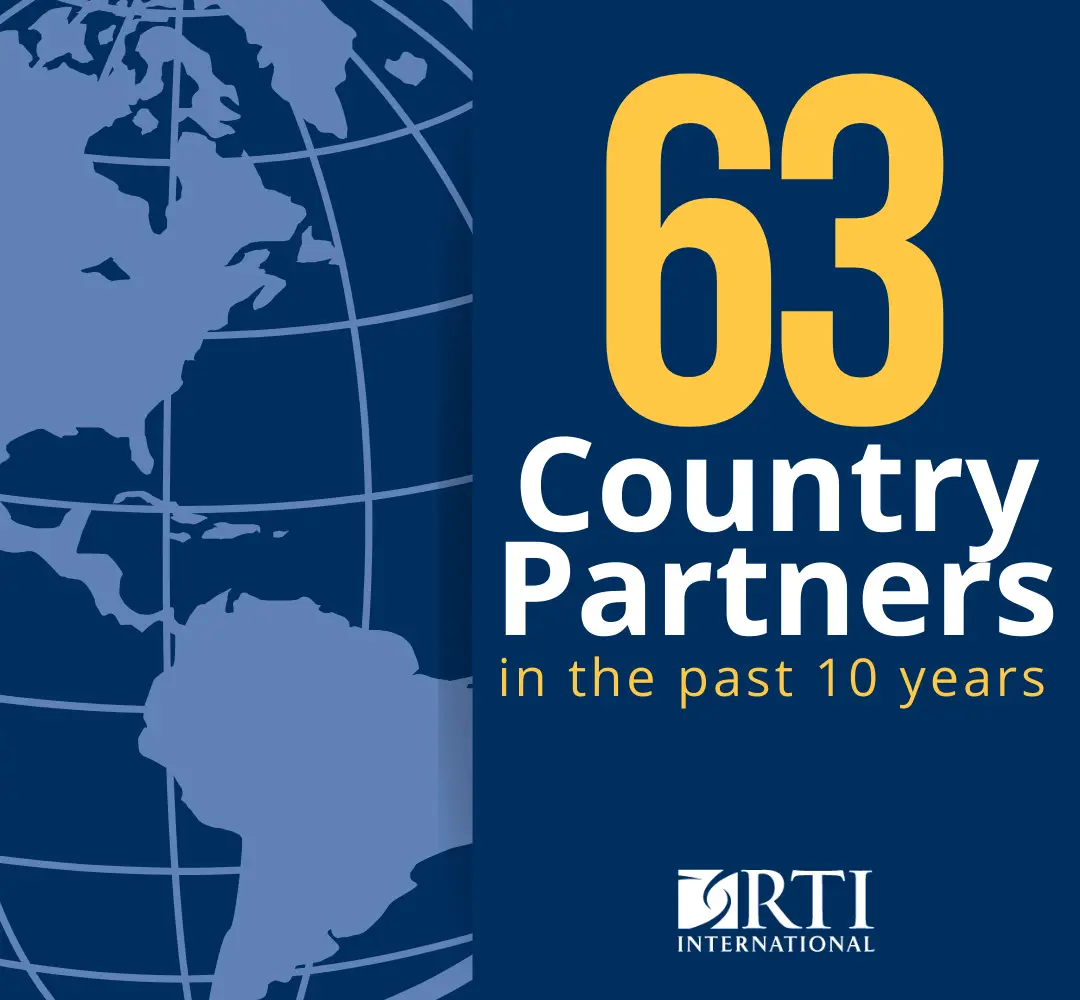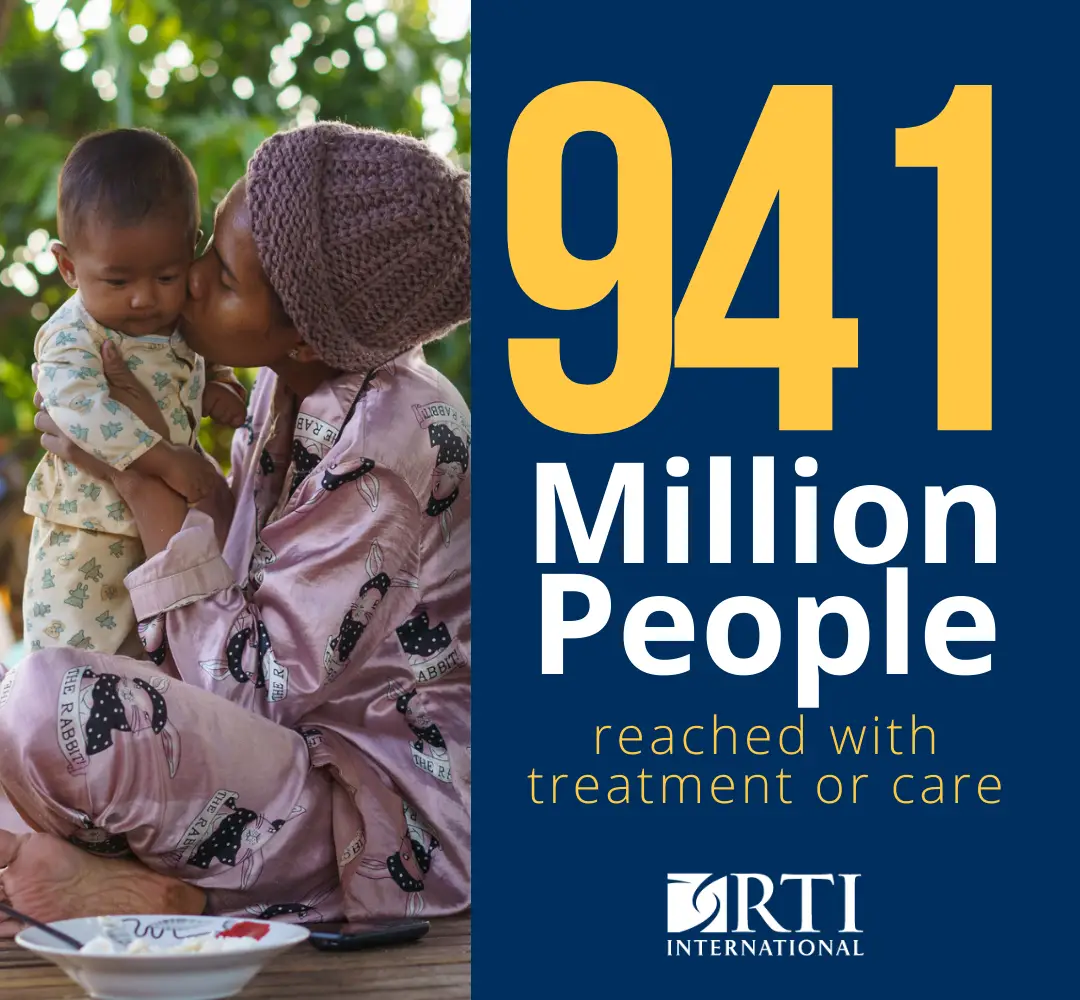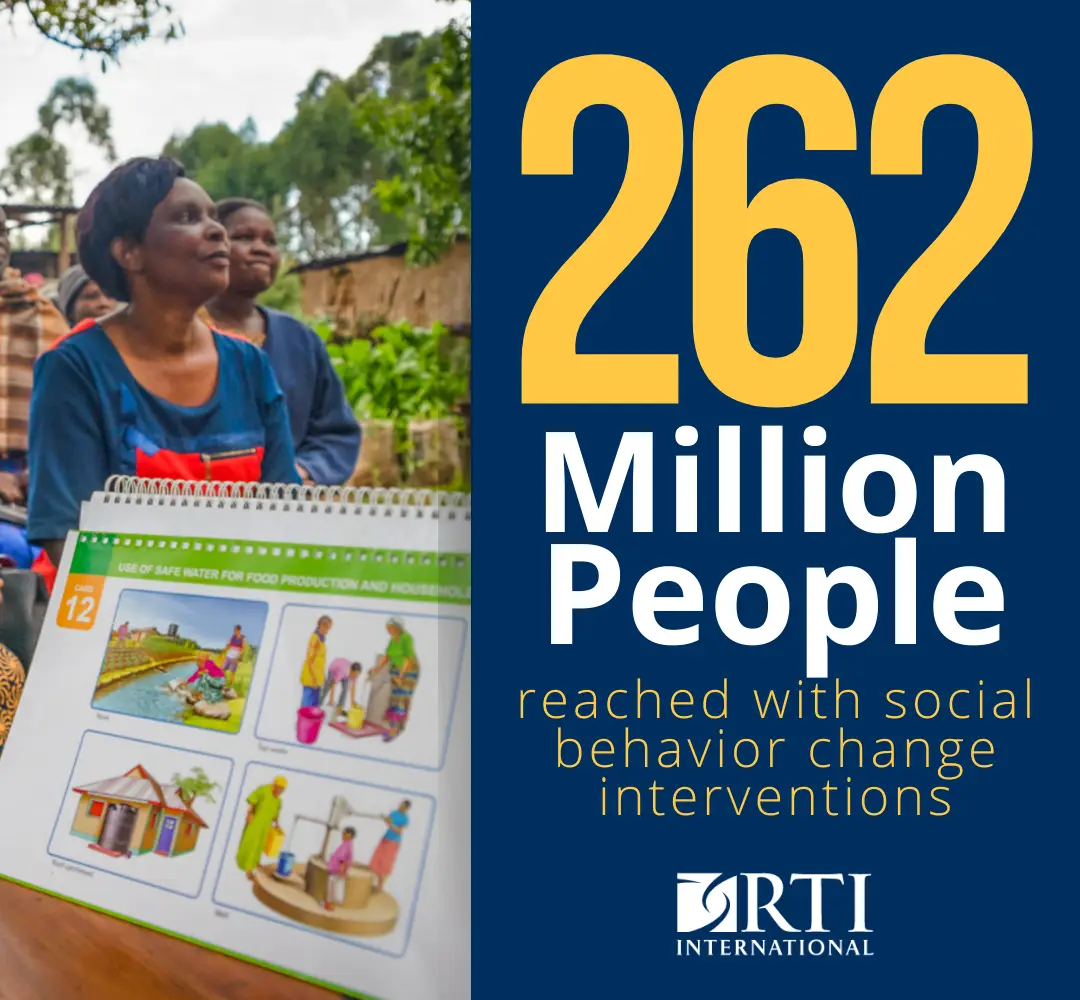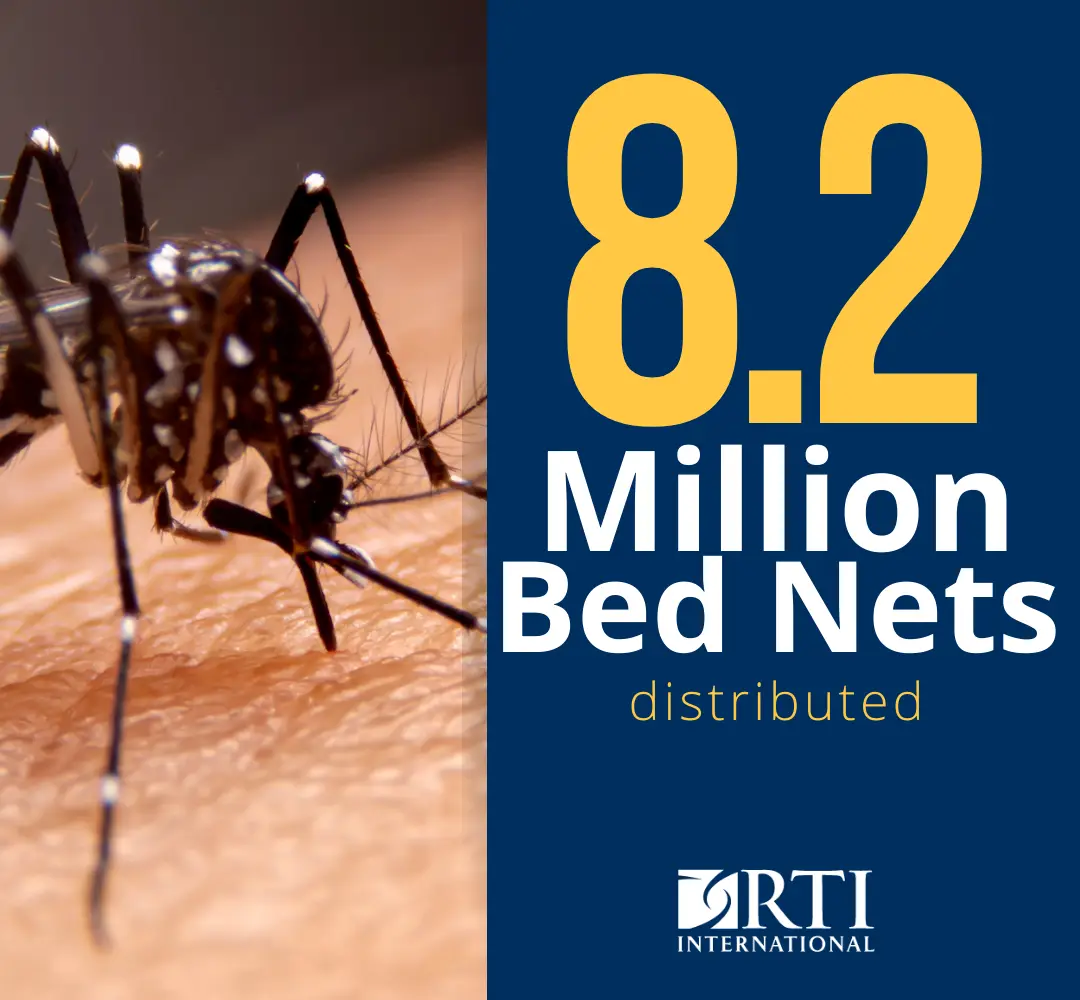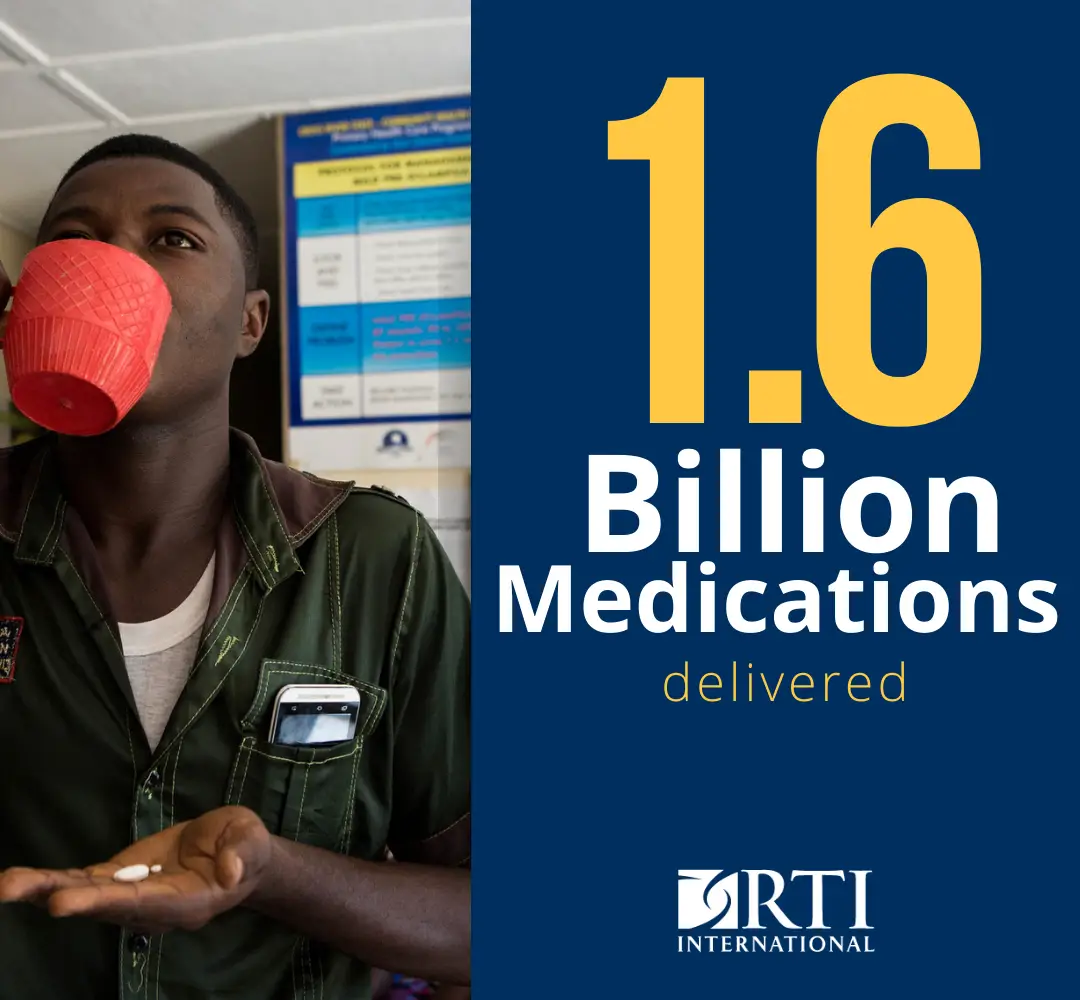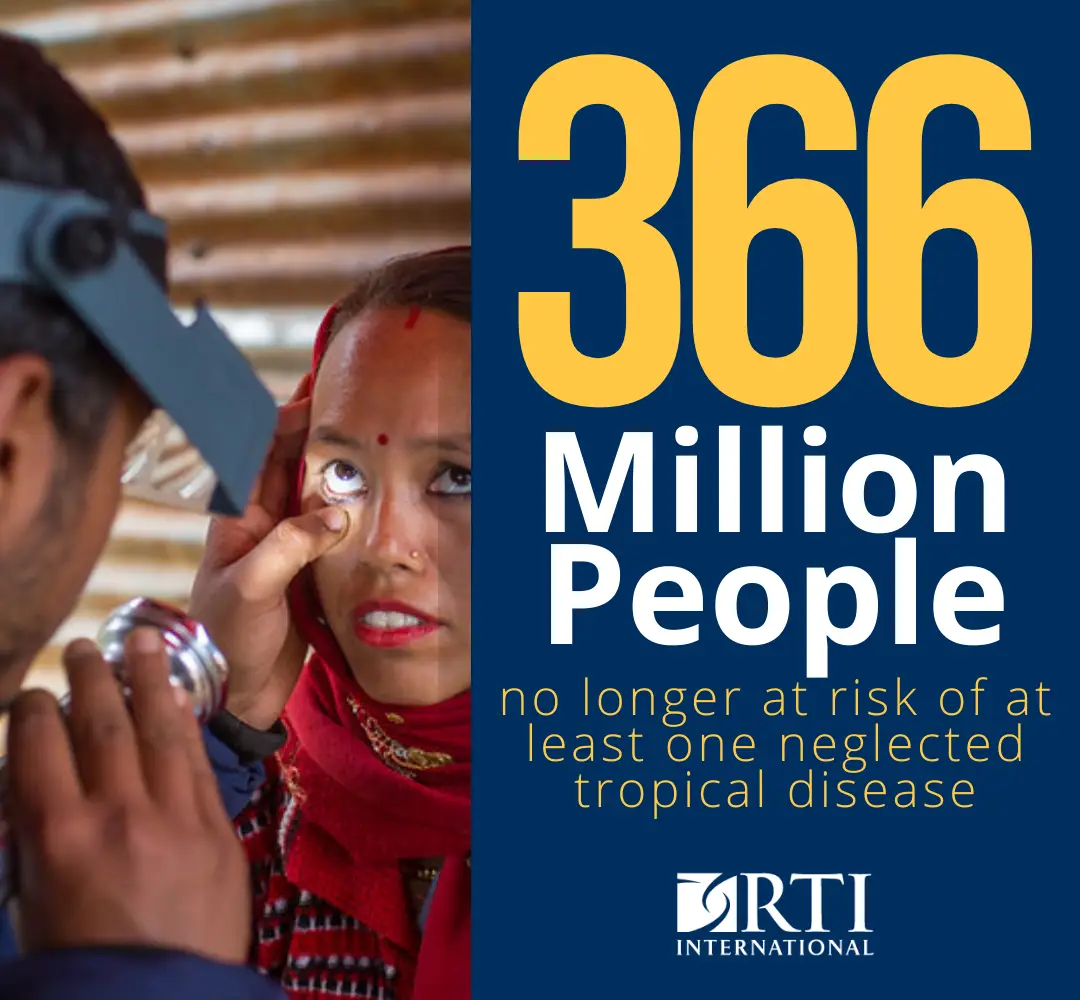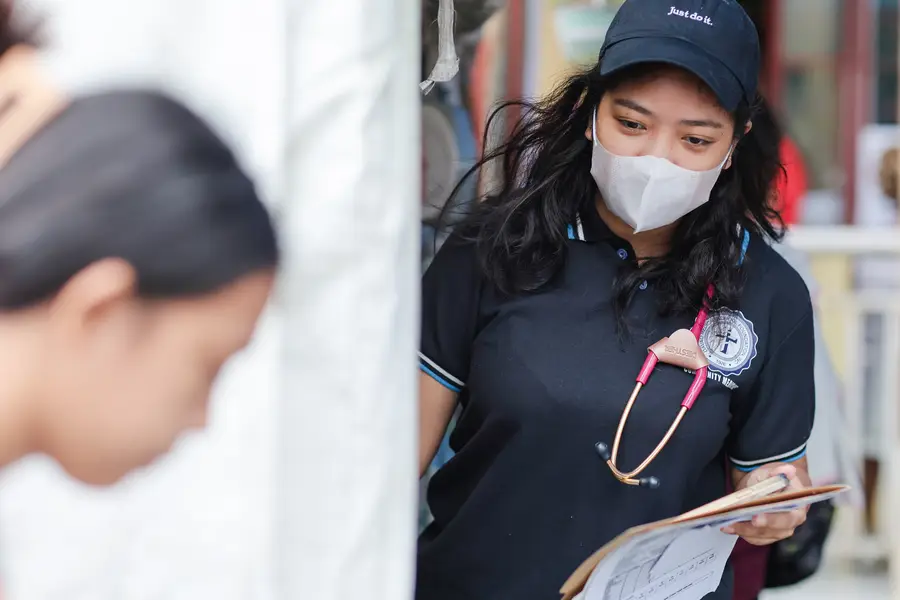
Photo Credit: Ouie Sanchez for RTI International
“The right nurse makes all the difference.”
If you or a loved one has ever been in the hospital—unexpectedly or for a challenging reason— you know what I mean by that statement. The health workers we interact with every time we enter, move through, and exit the health care system not only directly impact our physical and mental wellbeing, but they also shape our opinions of the experience and our likelihood of ever seeking care again. Doctors, nurses, midwives, community health workers, lab technicians, and health managers are all part of the greater system that determines the health and wellbeing of individuals, communities, and entire countries.
When I started my career as a registered nurse in the United States 30 years ago, I tried to always ask myself, “What can I do to make sure my patient and their family have what they need?”
After several years in nursing, I became drawn to public health, wanting to contribute beyond just the clinic walls. I wanted to effect policy and support local leaders to positively influence health outcomes around the world. Today, as I lead RTI’s efforts in global health for our International Development Group, I still try to bring that same patient-centered perspective. My colleagues and I partner with country ministries of health, donors, civil society organizations, communities, and the private sector to ensure that everyone, regardless of income level or geographic location, has the opportunity for not only positive health outcomes, but also a positive health system experience.
Progress and Opportunities in Global Health Equity
The global health community has experienced positive momentum and progress over my 25 years in the field—from increased interconnectedness with other sectors like education, to game-changing scientific innovations like the recently announced malaria vaccine. At the same time, massive gaps in equity persist when extending quality care to all, creating a ripple effect in access to and quality of care. For example, maternal mortality rates are still unacceptably high, with almost 95 percent of (largely preventable) deaths during childbirth occurring in low- and lower-middle-income countries.
Call me an eternal optimist, but I believe that achieving quality, equitable health outcomes is a possibility across the globe. To get there, we need locally led, collective, and systemic efforts. Here are three main areas in which we’re targeting these efforts, building on RTI’s 65 years of experience in health systems strengthening. Together they form a comprehensive approach and present great opportunities to improve and save lives in alignment with local contexts and priorities.
Health Systems Strengthening
The approach: A health systems mindset focuses on improving the overall health infrastructure and delivery systems in countries, including training and compensating health workers, upgrading the facilities in which they work, and enhancing access to essential services across the life course.
Why it matters: Functional health systems are the key to successful health outcomes, and they need to place individuals and communities at the center of improvements. Without improvements in a country’s health system, our chances of keeping global health equity gains alive are minimal.
How we’re proud to contribute: We bring pragmatism into health systems thinking and co-design locally led programs and technical assistance to reach the most underserved, striving to break down barriers among critical health system components like heath governance.
Disease-Specific Programming
The approach: These programs and research efforts target particular health threats, such as HIV, tuberculosis, malaria, and the set of historically under-prioritized neglected tropical diseases (NTDs), by implementing interventions tailored to combat these specific diseases, in partnership with local actors.
Why it matters: Even within strong health systems, diseases wreak havoc on individuals, families, communities, and markets. From the long-term, wide-ranging effects of noncommunicable diseases like cancer and obesity, to the sudden, drastic impacts from the outbreak of pathogens like COVID-19 or Ebola, it’s critical to understand, prepare for, and control these diseases to reduce their negative impacts on human health and economies.
How we’re proud to contribute: We’re investing in research and fostering meaningful partnerships with donors, ministries, sub-national health systems, community-based organizations, and the private sector that support and build on locally led efforts to surveil, treat, and eliminate diseases around the world. At the government level, we provide support to develop strategies and policies, and foster finance systems that can lead to more sustainable disease treatment programs that don’t rely on donor funding over the long term.
Cross-Sectoral Collaboration
The approach: Thinking cross-sectorally emphasizes partnerships between global health and other areas like education, agriculture, water and sanitation to address the underlying determinants of health—such as poverty and malnutrition—in a holistic manner.
Why it matters: In today’s interconnected world, we can no longer afford to think of international development sectors as silos. Patients and the health workers who serve them deserve better. Luckily, there is now greater understanding and respect for the larger ecosystem around health, which pushes us to be more focused on the patient and the community. These multi-sector connections reflect the holistic experience of individuals and how health is interconnected with all areas of our lives, from our income and stress levels to the water we drink, the food we eat, and the environments we live in.
How we’re proud to contribute: I’m fortunate to work at an organization with knowledge and programming across all sectors – from agriculture, to governance, to energy and climate. Because of that, we’re able to partner with local actors to bring a more complete spectrum of expertise to bear from patient-centered solutions to health challenges. This “One Health” or “Planetary Health” approach helps us seek the best possible health outcomes for humans, animals, and the environment when it comes to emerging infectious diseases, food safety and security, environmental hazards, and chronic diseases.
Learning and Evidence to Promote Quality, Equitable Global Health Outcomes
I’m encouraged that the global health community continues to work to strengthen health systems and is taking a more patient- and community-focused approach with equity at the forefront. Along with partners around the world, my colleagues and I remain steadfast in forging ahead, ready to tackle the persistent gaps that require our collective efforts to fill.
This World Health Day and every day, I'm looking forward to learning and growing across global health for more lasting, inclusive health gains and impact. And I challenge others working in this field to begin every single day asking themselves, “What can I do to make sure patients and their families around the world have what they need to support happy, fulfilling lives, wherever they may be?”

